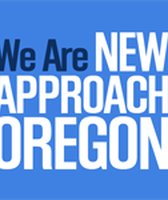Get PolitiFact in your inbox.
Could we really be losing one voter every 13 minutes?
The next general election for president is almost a year away. But given that the Republican presidential hopefuls are already meeting for weekly debates, we probably shouldn’t be surprised that Our Oregon, a progressive political organization, is already laying the way for its get-out-the-vote effort.
Our Oregon’s website makes a call to arms: "The need for voter registration is constant, especially in Oregon. With our vote-by-mail system, the people least likely to be registered to vote (young people, low-income people) are the ones most likely to get knocked off the rolls each year."
Then they put that need in perspective. According to Our Oregon, overall voter registration is down by more than 119,000 voters from the peak in November 2008.
"That’s like losing a voter every 13 minutes," the site concludes.
That statistic caught our eye. Could Oregon, which traditionally has high voter participation, really be hemorrhaging one voter every 13 minutes?
We gave Our Oregon a call and they told us they’d simply compared the number of voters registered in November 2008 to the most recent registration figures. These can all be found on the Oregon Secretary of State’s website. We followed suit.
According to monthly statistics, there were 2,154,288 voters on our rolls back in November 2008. (It’s important to note here that this number represents active voters. If a ballot gets kicked back to the county with an incorrect address, the voter is deemed inactive. That doesn’t mean those voters aren’t registered, just that they need to update their info with the state before their next vote.)
Anyhow, back to our analysis: The most recent voter statistics come from September, showing 2,034,589 registered voters. (Again, of the active variety.)
Take the latter from the former, and about 119,000 voters have slipped off the registers.
There were about 1,060 days separating Election Day 2008 and the end of September 2011. If you put that into the number of missing voters, you get about 113 fewer registered voters each day. Take the number of minutes in a day -- 1440 -- and divide it by 113 and you do, in fact, get 13 minutes.
Now, the figures seem to hold up. But one of the things we love to do with PolitiFact is offer up some context.
When we thought about the dip in the number of registered voters, it occurred to us that registration a year before a presidential election is probably always a little anemic. (Observant, right?)
So we pulled the figures and compared November 2007 to November 2008. We found that registers grew by more than 210,000 over that year. Same for November 2003 and 2004. During that period, registration actually grew by more than 260,000.
Just to make sure we got the whole picture, we also checked the percent of eligible voters who were actually registered. During the 2010 election, an estimated 72 percent of eligible voters were registered, according to our secretary of state. That was down 5 percent from the 2008 presidential election.
But even that dip seems fairly standard. In November 2006, the registration was down to 73 percent. But in November 2004 it had been 82 percent.
This is all to say that during presidential election years, registration surges. We’re not saying Our Oregon got its math wrong. We are saying that the current drop isn’t anything special.
For the last word on all of this we talked to Barry Pack, Oregon’s deputy secretary of state. He said that the figures Our Oregon cited were all accurate, but that it’s important to remember that there are many reasons why the number of registered voters might decline.
According to a state analysis comparing registration in November 2008 and 2010, about 70 percent of the 250,000-voter decline is attributable to voter inactivity for two federal elections. The other loss came from voter death, ineligibility, moving and other reasons.
Many of the folks in that 30 percent, Pack said, "are not an indication of lack of civic engagement."
We circled back with Our Oregon and talked with spokesman Scott Moore, who said he didn’t think our research negated the point that the organization was trying to make, which is that registration needs to get ramped up -- as always.
That brings us to our ruling. Our Oregon said we’ve lost about 119,000 since November 2008 -- one every 13 minutes -- and official figures back them up. The thing is, without the context that this is a pretty cyclical happening, that statistic sounds pretty dire. We think it needs context, so under PolitiFact rules, we’ll give it a Mostly True.
What do you think? Head back to OregonLive and share your thoughts.
Our Sources
Our Oregon, "We’re losing one voter every 13 minutes," November 14, 2011
Interview with Scott Moore, spokesman for Our Oregon, November 18, 2011
Interview with Barry Pack, Oregon Deputy Secretary of State, November 18, 2011
Oregon Secretary of State, monthly voter registration statistics, September 2011
Oregon Secretary of State, monthly voter registration statistics, November 2008
Oregon Secretary of State, monthly voter registration statistics, November 2007
Oregon Secretary of State, monthly voter registration statistics, November 2004
Oregon Secretary of State, monthly voter registration statistics, November 2003
Oregon Secretary of State, Official Voter Registration and Turnout Statistics, November 2, 2010
Oregon Secretary of State, Official Voter Registration and Turnout Statistics, November 4, 2008
Oregon Secretary of State, Official Voter Registration and Turnout Statistics, November 7, 2006
Oregon Secretary of State, Official Voter Registration and Turnout Statistics, November 2, 2004
Oregon Secretary of State, Official Voter Registration and Turnout Statistics, November 5, 2002
Browse the Truth-O-Meter
More by Ian K. Kullgren
Could we really be losing one voter every 13 minutes?
Support independent fact-checking.
Become a member!
In a world of wild talk and fake news, help us stand up for the facts.































































